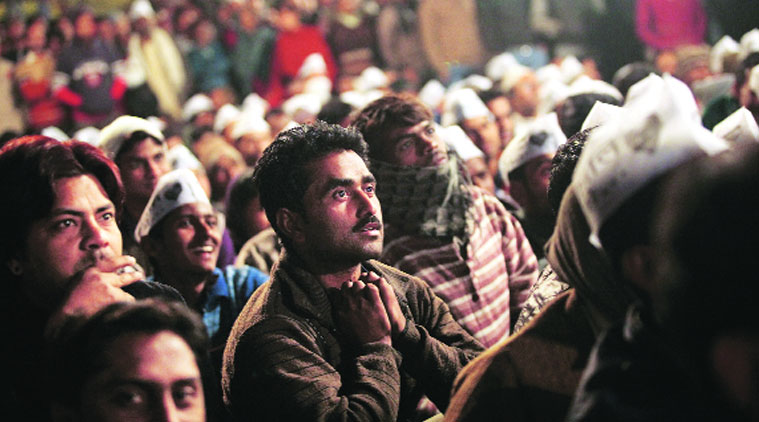
When we were planning to move to US from UK, the first thing I looked up, were the Indian grocery stores in US. As I Googled, a list shot up, in alphabetical order. First one on the list was Alaska. I wondered if there were Indian stores in Alaska, should I even worry about North Carolina (where we were planning to move).
From being taken as slaves to island nations like Trinidad and Tobago, to seeking asylum in UK and other European nations, post partition and in pursuit of higher education in universities spanning from Oceania to Americas, to most recently in search of better job opportunities after the Y2K bubble, the Indian diaspora has had many hues.
Wherever we go, we carry a little bit of "India", celebrating our festivals, cooking authentic Indian recipes and preserving our culture. Indianness has spilled out of the geographical borders into the hearts of people, dotted all over the world.
This year marks the 100th anniversary of Gandhiji's return to India from South Africa. The Government of India had organized a three day event in Gujarat, inviting the NRIs and PIO's from all over the globe. A coin and a stamp to commemorate Gandhiji’s return to the country were released by PM Narendra Modi, symbolising his transition from Pravasi (migrant) to the 'Father of the Nation'.
Gandhiji is embedded in Indians. Inseparable. His presence exists in books, memorials and statues across boundaries. I worked for Bharatiya Vidya Bhavan in London for some time, which was a minute's walk from Gandhiji's residence, where he lived as a law student. His statue stands outside Marbles Kids Museum, North Carolina in US, nearby our present home. It is where I introduced him to my kids.
He is like a family member to us, away from home. It is probably the reason why, when I go shopping and the lady at the cash register asks me if I am related to him, looking at my last name on the credit card, I get a warm gushy feeling, though I don't share any ancestry or even an iota of his qualities. Who wouldn't love to be related to an icon?
Mahatma Gandhi set examples of non-violence, non-discrimination and satyagraha (passive resistance), inspiring many like Martin Luther King Jr., Nelson Mandela and Desmond Tutu. He is also known for his internationalism, rather his broader view of nationalism, which is especially relevant in Indian context today, when nationalism is being equated with religious dominance. His last fast was against the Indian State, to give the rightful remuneration of 55 crores to Pakistan. It was also to reiterate communal harmony between Hindus, Muslims and Sikhs. He wanted better relations between India and Pakistan. He took nationalism to a different level, when he gave humanity a preference over anything else.
It was difficult to understand his stance, when in India. However, differences across borders melt in a new country. In UK, my Pakistani colleague would drop me to the railway station in her car even though it was out of her way, every time she saw me at the bus stop, waiting for the bus. The Bangladeshi staffer at a local Burger King always greeted us with a smile and would give us a free upgrade on our order, every time me and my husband visited.We happened to be among the few Asian faces in the neighborhood. It reminded us of the ideals for which Gandhiji strove so hard. It all started sinking in.
Instead of emulating him, presently the tide is turning in a different direction. Hindu Mahasabha in India wants a temple built in the name of Nathuram Godse, his assassin. A movie 'Deshbhakt Nathuram Godse' has been slated for release on January 30, Gandhiji's death anniversary, and is currently being petitioned for a ban. It allegedly paints Godse in a patriotic light and elevates him to a pedestal.
Asim Sarode, a Gandhian activist, has asked the film be released on the grounds of freedom of expression. According to him, the film is 'incapable of denting the stature of someone like Mahatma Gandhi'. What could be a better example of following Gandhiji's footsteps.
Such instances keep our hopes alive, for a better world. I look outside my kitchen window and ponder...can I manage without my Indian spices? I probably can. I will find substitutes, just like I use pancake mix to make gulab jamuns. Can I find a substitute for Mahatma Gandhi's principles to look up to in today's world?



